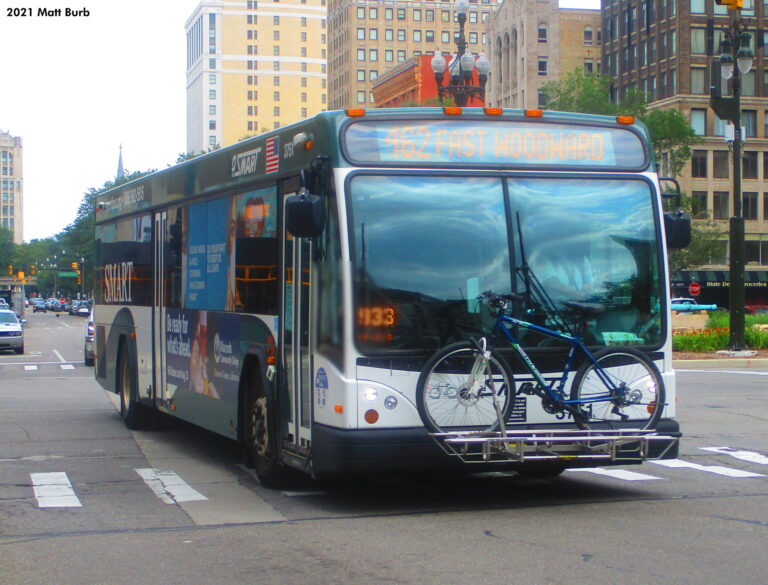Auburn Hills City Council opts out of SMART Bus transportation
Photo courtesy of Virtual Transit Center
In a Feb. 21 meeting, the City Council voted to eliminate the SMART Bus service in Auburn Hills after 2022.
On Feb. 21, the City Council of Auburn Hills met at 7 p.m. to vote on SMART Bus transportation. The council voted 5-2 in favor of opting out of the SMART Bus system.
Prior to the vote, Auburn Hills residents and attendees from the surrounding area read out public comments to the council with the intention of persuading them to keep Auburn Hills opted in to the SMART program.
As a result of the vote, the SMART Bus transportation system, which connects many cities throughout the Metro-Detroit area, will no longer run through Auburn Hills. This includes Oakland University’s campus, where the SMART Bus was the only remaining public transportation for staff and students following the elimination of the Bear Bus in 2020.
The SMART Bus will continue to be around through the remainder of the year, but after 2022 it will be eliminated. However, at the council meeting, the idea of an alternative for transportation for only the elderly and disabled population was brought up.
Council members proposed to replace the SMART Bus system with a voter-funded service that would run Monday through Friday. Members say that this service will be cheaper than opting-in for the SMART Bus service.
It is uncertain as of yet if the proposed alternative will be implemented. Residents will have the opportunity to vote on the alternative transit service on the August ballot.
“The council voted to eliminate the SMART milage from the ballot in 2022,” OU Student Congress (OUSC) Speaker of the Legislature Jeremy Johnson said. “SMART will still be around for the rest of the year, but voters will not get a chance to vote yes or no on continuing the program with their tax dollars.”
Without the SMART Bus, many Auburn Hills residents and OU students who relied on the service will need to find other means of affordable transportation.
Campus transportation accessibility has been an ongoing conversation at OU since the return to campus following remote learning and many are especially concerned about transportation during the winter weather conditions. If the alternative voter-funded transportation is not approved, the elimination of the SMART Bus could be another obstacle for disabled students.
Disability Support Services (DSS) at OU works one-on-one with students to meet their indivdual needs and accomodations. However, student transportation is not a service that the DSS department facilitates, and students are currently responsible for their own means of transportation.
“Some administrators have said that they’re open to a new transit system on campus,” OUSC Vice President Murryum Farooqi said. “In terms of OUSC’s actions, we are exploring what it means for us and what we can do. We definitely want to secure transportation for students.”







